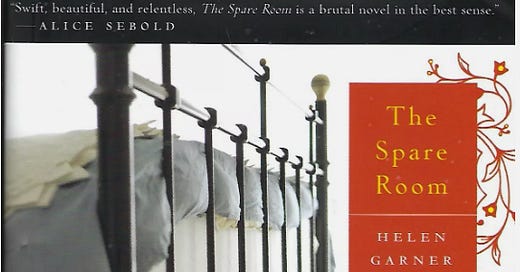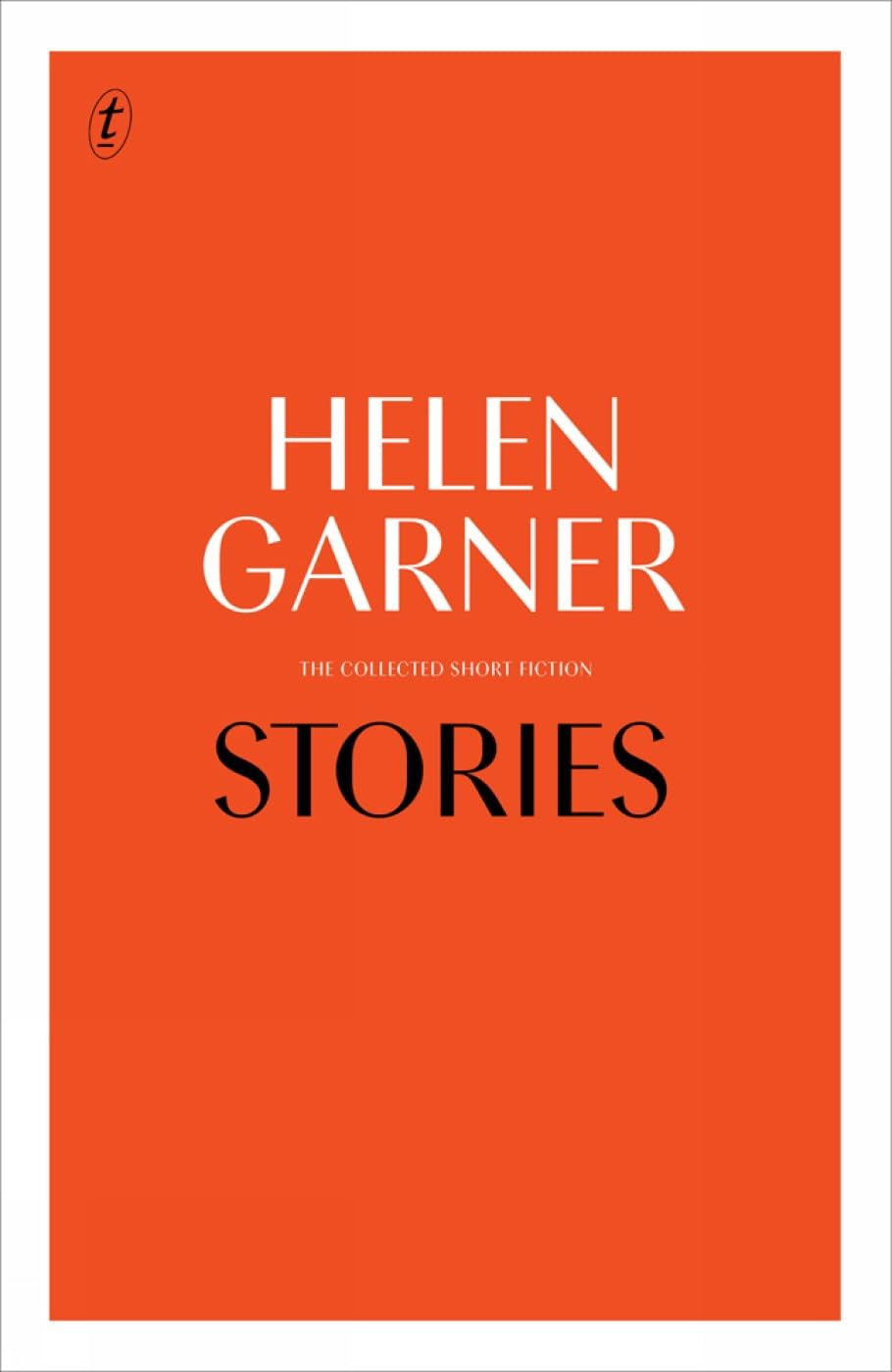A friend comes to Melbourne to stay in your spare room one summer day, departure date unspecified. No ordinary occasion, this: she is one of your oldest friends and has just completed an arduous chemotherapy treatment in her home in Sydney. Medicine has tried everything it could, to no avail; she is recommended palliative care and ways to make the rest of her life comfortable and pain-free. Not for a moment will she contemplate any of it. She has heard of an alternative medicine specialist who “fights cancer” with gigantic doses of Vitamin C, light therapy and an assortment of other methods. She goes to therapy sessions daily, to a run-down office in a strip mall, and returns feeling worse. Pain is good, she is certain; that’s the pain of cancerous cells being eliminated.
In between, the two friends talk. Any expressions of doubt from the narrator about the therapy are waved off. The friend is certain that the right therapy coupled with the right amount of willpower will see her through. While everyone else understands that she is dying, she refuses to. She is also grand, proudly bohemian, stubborn and oblivious of the demands she is placing on others. The two women nearing their seventies are at a similar point in life - living independently and alone - but have arrived there by a different trajectory. Narrator is a grandmother and a thrice-divorcee; the friend never married. Narrator is also a writer, sharing many features with Helen Garner the author. One of her adult daughters lives next door with her family and her tween granddaughter roams through the two houses and yards freely. Life attempts to go on, but having a dying person in your home who refuses to acknowledge that she is dying turns out to be a full-time job.
The Spare Room (2010) is the first book by Helen Garner that I’ve read, and it made me want to travel to Australia for the first time in my life. (I am a Coetzee fan, but somehow his Australian novels don’t dazzle with local colour.) There are authors with whom you feel immediately that you have an understanding - few of those for anyone around, but when you encounter them every now and then, it’s a cause for celebration. What I would describe now as the standard HG narrating voice - straightforward, unornamented, eyebrow slightly raised, lean, knowing but not cynical, lucid - is here fully developed. I’ve read Garner backwards, from the more recent work back to her early writing, and it seems to me that it took some years of life to prune it into current perfection. But it’s always there.
The Spare Room does not end with a death, which is postponed until after the novel’s end: you can read on without dread. What it does end with is the acquisition of wisdom.
Everywhere I Look (2016)
Will I care for her non-fiction equally, I wondered? But here it was again, that HG voice, only more chiseled in these occasional pieces on anything from learning how to play ukulele to the movies of Russell Crowe. I adored this collection back to back, though there are standouts. I don’t think I’ll ever forget the story of her and her friend going out for dinner after a day of shopping, being asked to move from the good sofas to the less comfortable chairs, being patronized by a young waiter, and how Helen responded to the situation. Or the story of taking care of a friend’s dog that goes feral on her after she slightly changes their daily routine, and losing the battle of the wills and, she is certain, his respect forever after.
Stories (2018)
There are recurring characters in her (auto)fiction, few more intriguing than “Philip”, described in more than one book as the love of narrator’s life. But he was not one of narrator’s (and actual Helen’s) three husbands; they had an affair while he was married - or they both were, though his marriage was a functioning, dedicated one. There are a couple of stories here with Philip or a Philip-like figure that don’t end well, and there is no one around that she can tell - certainly not her adult son who picks her up at the airport after she returns from a trip with Philip which ended badly. Various other memorable stories, including a very short one about a young couple living in Paris, having a fight about ingredients in the cupboard which hints at much more significant disagreements underneath, and a comic-anxious story written from the POV of the little Helen, about three years old, who accidentally discovers her teen cousin and his friends during some sort of a sex game and is punished for it by being shown pictures of injured children (cousin’s father is a pediatric surgeon). It’s not often that you encounter a toddler narrator who can’t understand what’s going on but feels the panic poo coming and must focus with all her might on keeping it inside.
The Children’s Bach (1984, reissued in 2023)
This is the ultimate book of Philip and probably Garner’s best known novel. The story is of a group of friends - two couples, some children, the odd sibling - and how they handle ‘adulting’, parenting, and settling into what is to be their permanent life. Philip, in a relationship with Elizabeth, is having an affair with Athena, partnered with the stable and orderly Dexter. “Perhaps there was a world where people could act on whims, where deeds could detach themselves clearly from all notion of consequences,” Athena thinks as she’s realizing Philip is more elusive than thought and she too attached to her dull and predictable life. “Perhaps she too might never apologize, never explain.” But not in this world.
Daphne Merkin’s review in the NYT upon the reissue has it right:
I felt I had walked into a room where little was coming into focus, until, quite suddenly, it did. Garner’s style is laconic and wayward, reminding me of other writers whose gift is the art of artlessness, like Jean Rhys, Jane Bowles and Paula Fox. Nothing is put forward to entice the reader to take an interest in what is taking place on the page — no dramatic events or abrupt plunges into emotion. Everything is a manifestation of Garner’s sensibility rather than a plot point, which can make for a certain opaqueness regarding her character’s motives. Yet “The Children’s Bach” seemed truer to the way we experience life than most other novels I’d read.
Yet this is not my favourite Garner. The structure here is loose and pretty arte povera, whereas the writing in The Spare Room and later pieces is abundant, positively satiating.
Another one from the arte povera family of books, Honour & Other People’s Children (1980, 2008) was only Garner’s second book and one that, as she wrote many years later in the foreword to True Stories, upset all the people who found themselves in it, thinly disguised. In Honour, a long and friendly separation between exes needs to be formalized as the husband now intends to marry someone else, whereas Other People’s Children looks at the dying friendship between two women whose lives have entwined for decades. Lots of bohemian communal living and circumstantial mothering and characters you’re not sure why they’re there, but the Garner-ian world-making, its discreet beat, holds it all together. Just about.
Her breakout novel, Monkey Grip (1977), I haven’t read, nor have I read her crime books - though her occasional pieces explaining why she’s interested in true crime (see Everywhere I Look) are really compelling. Her next one will apparently be a book about her grandson’s football team… among other things. The Q&A with Garner by the Observer’s Rachel Cooke from earlier in 2024 is a good a read.








